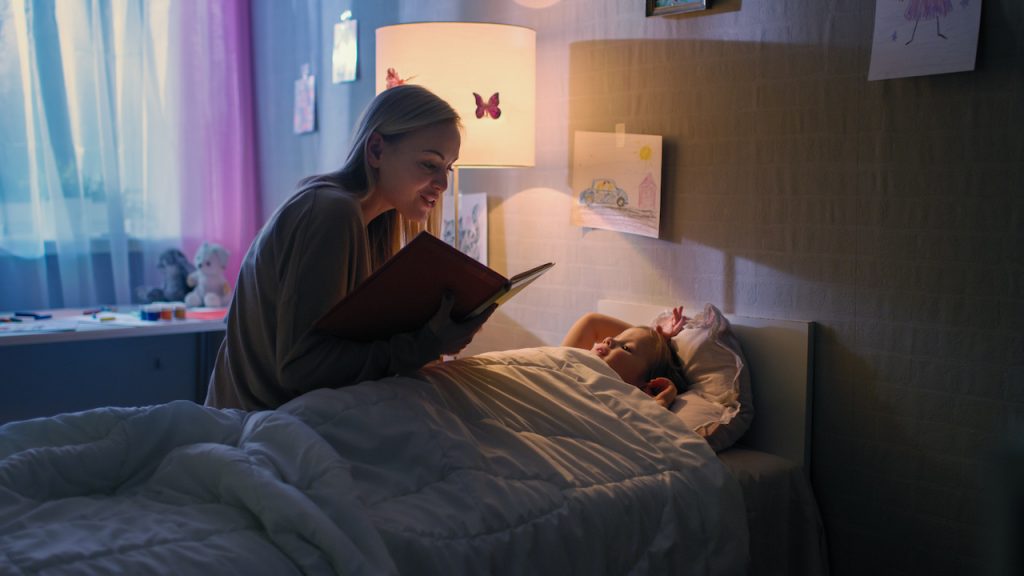Sleep deprivation was one of the things that concerned me most about becoming a parent. After my daughter’s first few months, I figured that we were past that phase. WRONG! A lot of kids seem to go through phases where sleep patterns change. Unfortunately, the COVID-19 restrictions are wreaking havoc on the routines and activities that we—and kids especially—need to thrive. Too much screen time and too little physical exercise are major contributions to difficulty falling asleep. Throw in some inadvertent viewing of something scary and the general anxiety that is permeating our society right now, and we have the perfect recipe for sleep problems.
Tips for Improving Sleep Hygiene
So, what to do about it? Falling asleep is a skill that can be learned (and re-learned) as kids grow and develop. Here are some ideas for improving sleep hygiene for kids of any age:
- Try to keep bedtimes and wake times consistent.
- Eliminate screens one hour before bed. Instead, take a walk, play a board game, or read.
- After getting ready for bed, choose an activity in bed for 15-20 minutes that will help you relax. This could be reading, listening to soft music, mindful meditation or prayer. Soon you will associate this activity with getting ready to fall asleep.
- At lights out when feeling drowsy, identify a cue to associate with closing your eyes and falling asleep. It could be getting tucked in by a parent or snuggling into most comfortable position.
Consistency is Key for Bedtime Routines
It takes practice to learn a new sleep routine, but it is possible. With young children, I literally have them act out the steps to make sure they understand the routine. Parents will likely need to reward children’s efforts to stick to this routine and to stay in bed (unless it is an emergency). Kids also sometimes need to practice what to do to fall back to sleep, such as cuddling with a stuffed animal for a few minutes instead of reflexively going into parents’ room.
If your child is struggling with sleep problems, contact your pediatrician for additional guidance. In addition to bedtime fears and anxious rumination, there are a whole host of underlying sleep issues, like Restless Leg Syndrome and Obstructive Sleep Apnea that can contribute to your child—and you—not getting the good night’s sleep you deserve.






Comments